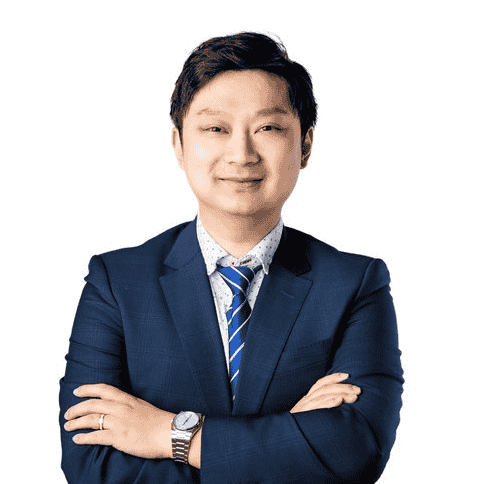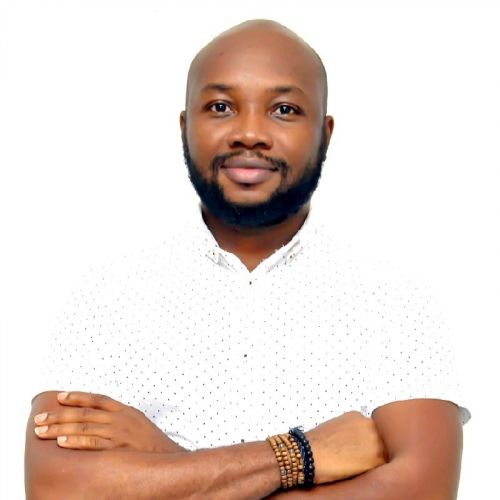How Neptune Nanotechnologies uses marine waste to create a circular materials economy
In this #MeetTheMB100 interview, Aaron Guan, Founder & CEO of Neptune Nanotechnologies, shares how they are extracting high-performance nanomaterials from fishing industry waste, to create a natural alternative to chemical additives.
This interview series is sponsored by EY, Hogan Lovells, Green Frontier Capital, Kenya Climate Ventures (KCV), The Portman Estate, and innovision.

Aaron Guan, Founder & CEO of Neptune Technologies
Q1. What are the challenges you are trying to solve, and why do they matter to you?
At Neptune Nanotechnologies, we are addressing the urgent need to replace unsustainable and toxic additives commonly used across industries like pulp, paper, epoxy, and film packaging. These sectors rely heavily on synthetic chemicals and petroleum-based materials, many of which are non-recyclable and energy-intensive to produce, contributing to environmental pollution. Meanwhile, millions of tonnes of crustacean shells are discarded each year—much of it is dumped back into the ocean—despite being a rich, untapped source of valuable biopolymers like chitin.
This waste is an opportunity. By extracting high-performance nanomaterials from fishing industry waste, we create a more circular, sustainable, and equitable materials economy. Our work matters because it enables industries to transition away from environmentally harmful inputs without compromising performance.
It’s not just about innovation — it’s about building systems that respect both environmental boundaries and economic realities. Our goal is to transform the way materials are sourced and used, demonstrating that environmental responsibility and industrial performance can go hand in hand.
Q2. How is your work tackling these challenges, and what impact are you having?
We have developed a proprietary process to extract high-performance chitin nanocrystals from crustacean shell waste — a sustainable and abundant raw material. These nanocrystals are recyclable, biodegradable, and non-toxic, and they are highly effective in enhancing the mechanical strength, barrier performance, fire retardancy, and durability of materials such as paper coatings, epoxy resins, and plastic films. By offering a natural alternative to conventional chemical additives, our work helps reduce the reliance on petroleum-derived and environmentally harmful materials.
Our impact is already visible in gaining commercial traction. We’re piloting our materials with global manufacturers and developing recyclable, lightweight, and sustainable products. For example, our materials help improve paper tray durability without the need for plastic liners and enhance epoxy toughness while reducing Volatile Organic Compound emissions. At scale, this translates to fewer toxic additives in circulation, reduced solid waste in landfills, and lower greenhouse gas emissions.
By diverting marine waste from ecosystems and offering manufacturers high-performance, sustainable alternatives, we are contributing to a circular economy rooted in responsible innovation.
Q3. How do you work with partners and the broader ecosystem to achieve your mission?
Collaboration is at the heart of our mission at Neptune. We work closely with manufacturers, research institutions, and sustainability-driven organisations to bring our chitin nanocrystal technology from lab to market. Our partnerships span early product development, testing, and commercialisation, ensuring that our solutions not only meet performance needs but also integrate seamlessly into existing industrial systems.
We actively co-develop pilot projects with customers, using their feedback to tailor formulations and scale impact. At the same time, we collaborate with universities and applied research labs to continually improve our extraction methods and material performance. These partnerships enable us to remain at the forefront of bio-based innovation while maintaining practical and cost-effective solutions. .
Beyond technology development, we collaborate with incubators, accelerators, and climate-focused venture networks to amplify our reach and refine our business strategy.
Q4. What is your ambition for the future of your business, and what support do you need to increase your impact?
Our ambition is to become the global leader in bio-based nanomaterials – much like Nvidia transformed the chip manufacturing industry, we aim to make chitin nanocrystals a fundamental building block across multiple industries. We envision a future where our material is incorporated into everyday products – from packaging films to structural adhesives – enhancing performance while minimising environmental impact. Our goal is to penetrate at least 20% of key markets like pulp, paper, epoxies, and bioplastics, enabling manufacturers to transition toward lighter, stronger, and more sustainable materials.
To achieve this vision, we require support in two key areas: scaling and strategic alignment. On the scale side, we are transitioning from pilot production to industrial-scale manufacturing. This requires capital investment, infrastructure development, and global distribution partnerships. On the strategic side, we seek collaborators who share our sustainability vision—corporations willing to co-develop next-generation products, and investors who understand the long-term value of material innovation.
Quickfire Questions
Q1. Can you share a mistake with us that you’ve learned from?
In a previous venture, I learned the hard way the importance of founder equity and alignment. Losing control of the company taught me to build clearer structures and stronger partnerships from the very beginning.
Q2. What is something you wish you were better at?
I wish I was better at slowing down and celebrating small wins. When you’re building a startup, it’s easy to focus only on what’s next instead of acknowledging how far you’ve come.
Q3. What underrated skill do you wish more impact-focused leaders invested time and energy in?
Active listening. In impact-driven work, truly understanding your partners, team, and customers can uncover better solutions, build trust, and create more lasting change than any single technical or strategic insight alone.
Q4. What is the one book that everyone should read?
Atomic Habits by James Clear.
Q5. What are the sites, blogs or podcasts that you can’t imagine your day without?
The All-In podcast with Chamath, Jason, Sacks, and Friedberg is a must for me. It blends sharp insights on tech, startups, and global affairs.








